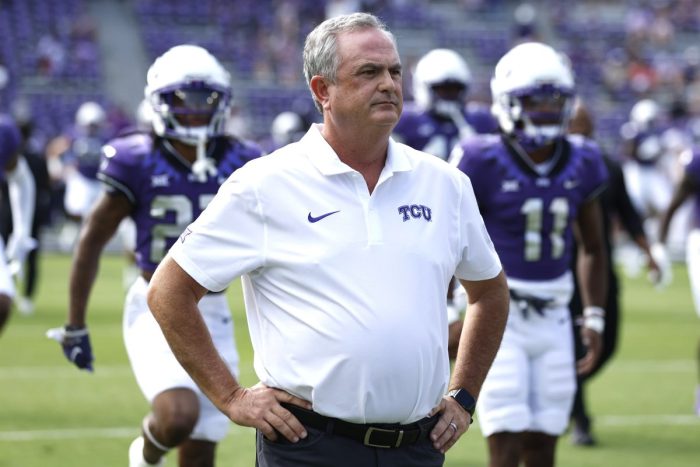
As the College Football Playoff has made it abundantly clear over the past several seasons, the 134 teams in FBS football are not playing the same sport.
The difference between what Georgia puts on the field and what, say, Akron puts on the field on a given Saturday are two different products. If the Bulldogs and Zips met on a neutral field and played their starters for an entire 60 minutes, the score would be a whole lot to a little (probably 0).
It’s a harsh reality, but a reality nonetheless: the difference between the haves and the have-nots in college football is a widening gap, and before too long, they’ll be two different levels entirely.
After the death of the Pac-12 (R.I.P.), the Power Four — the SEC, Big Ten, Big 12, and ACC — has become the fixture of the sport, as all the biggest programs in the country fit into those leagues.
As the college football landscape changes and those leagues start to move toward a model where student-athletes become essentially paid employees, there’s likely to be an official split. That is, if you ask the coaches of the revenue-driving sport that has caused so much change over recent years.
In a recent interview with Dave Campbell’s Texas Football’s Mike Craven, TCU head football coach Sonny Dykes said that the split is coming; it’s just a matter of time.
“There’s got to be a split eventually,” Dykes told Craven. “There is such a big difference right now between the haves and the have-nots, and I think we’ll eventually split into two separate divisions. Alabama and La. Tech aren’t playing the same sport.”
All of this talk of a split stems from the idea that athletic departments are looking at a very real future where college football rosters have a payroll. Therein lies the issue for the Group of Five teams. How in the world is a school like Akron going to afford to pay its players every year at the same rate UGA will? The simple answer is, they won’t.
“These jobs are even harder now because if one of your players has a great season, he’s probably getting plucked away,” Dykes said. “Your only chance is to build a great culture and hope that keeps most of your roster intact.”


